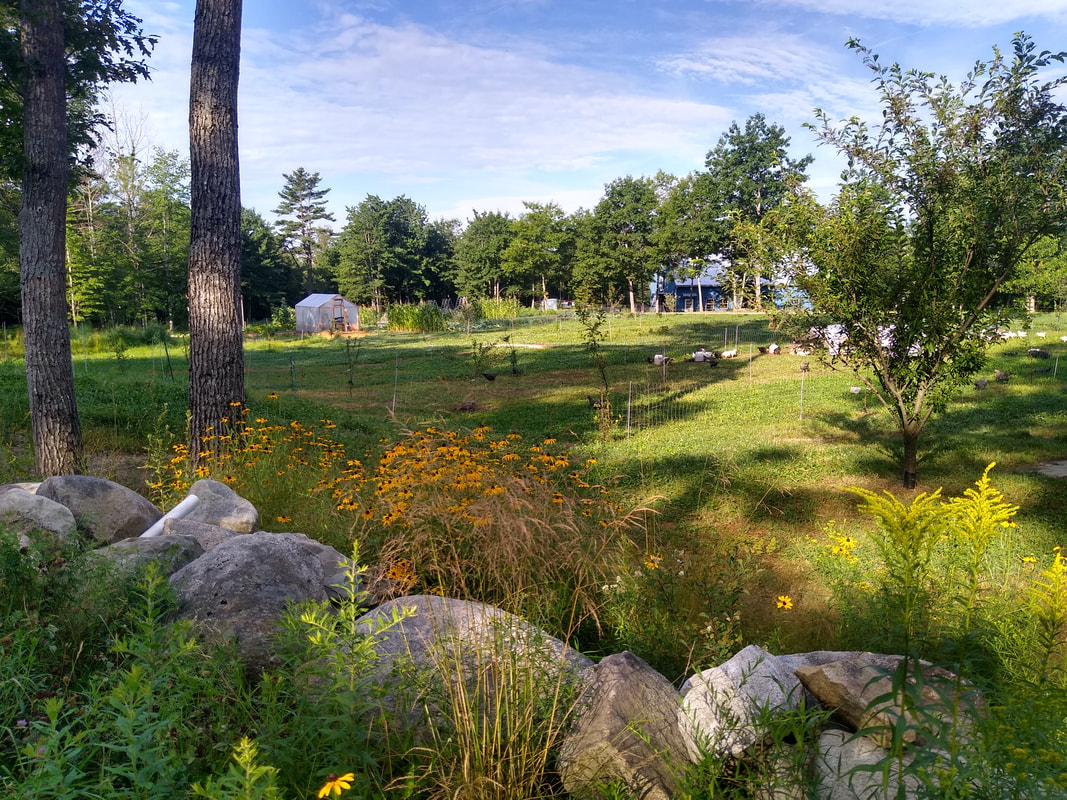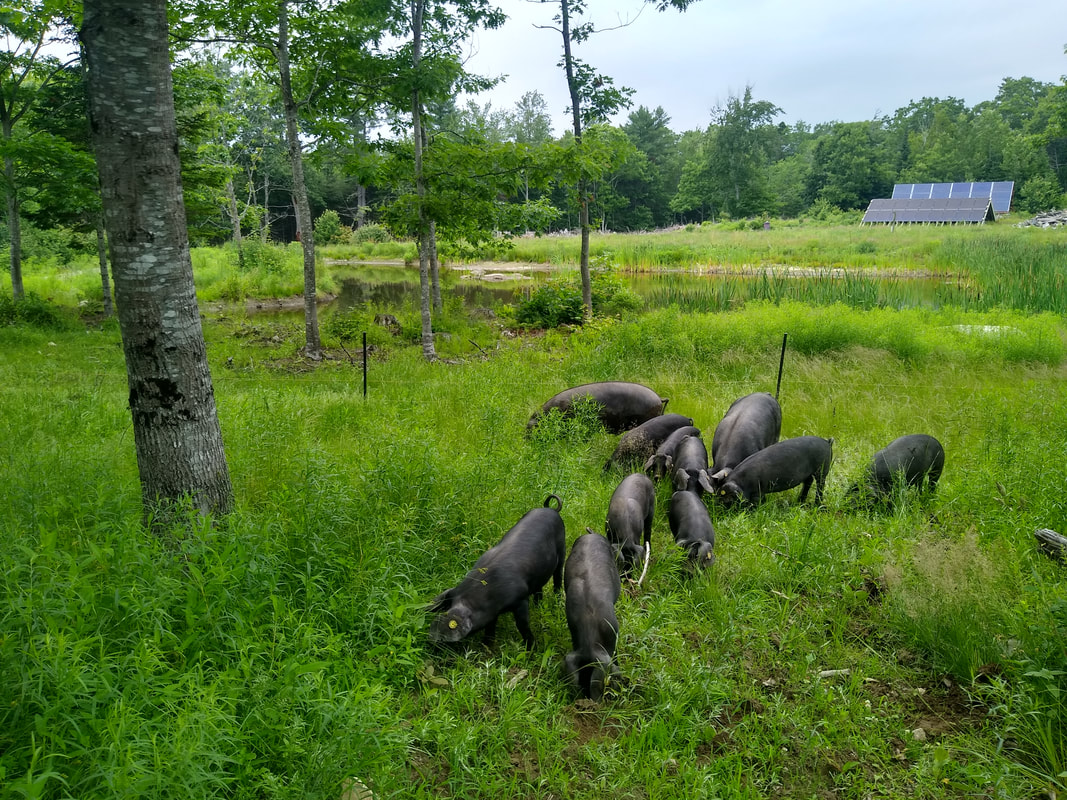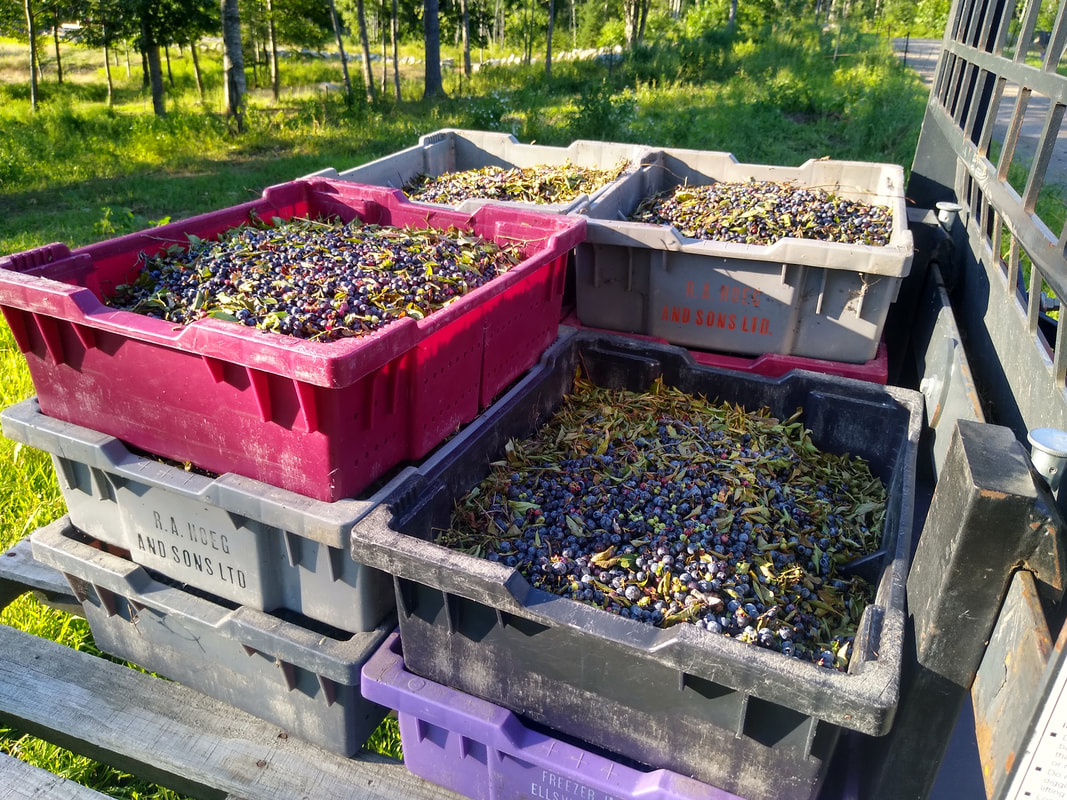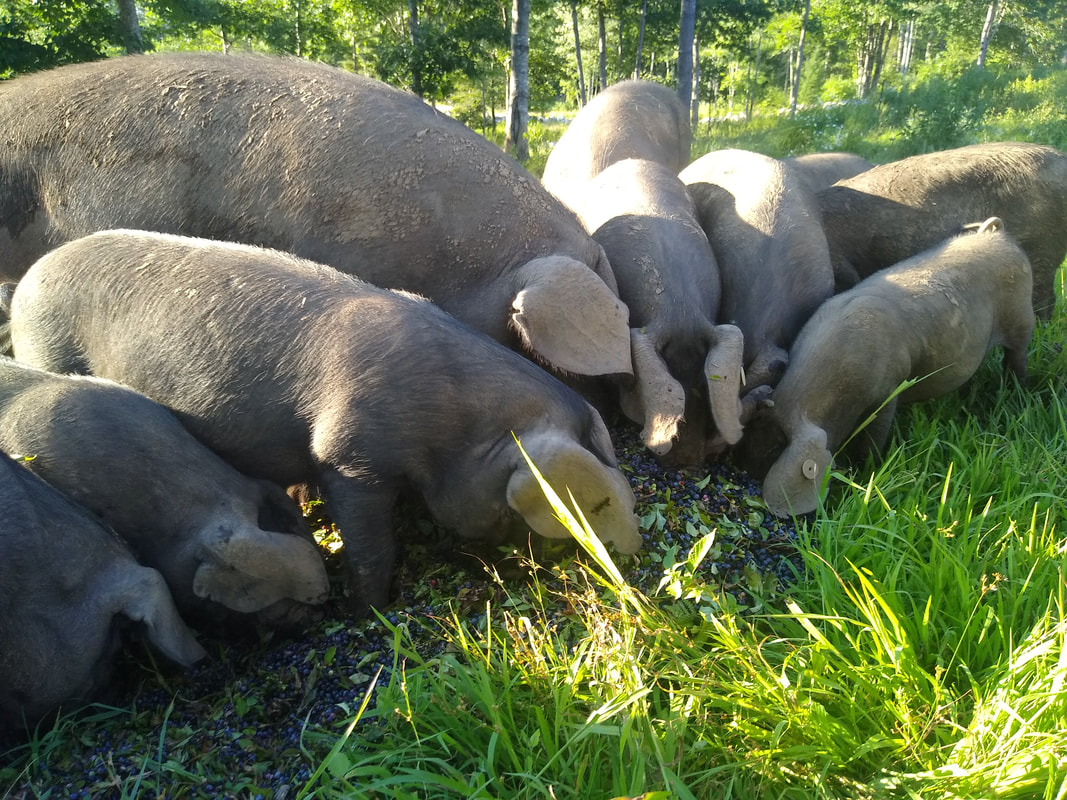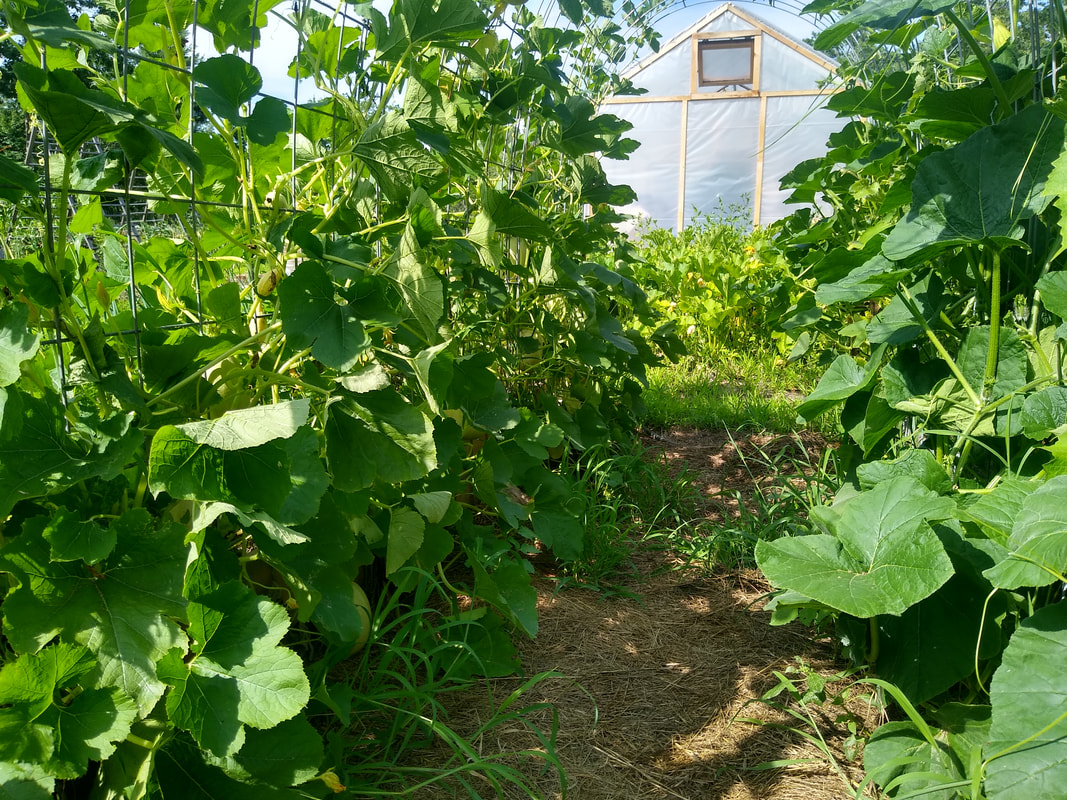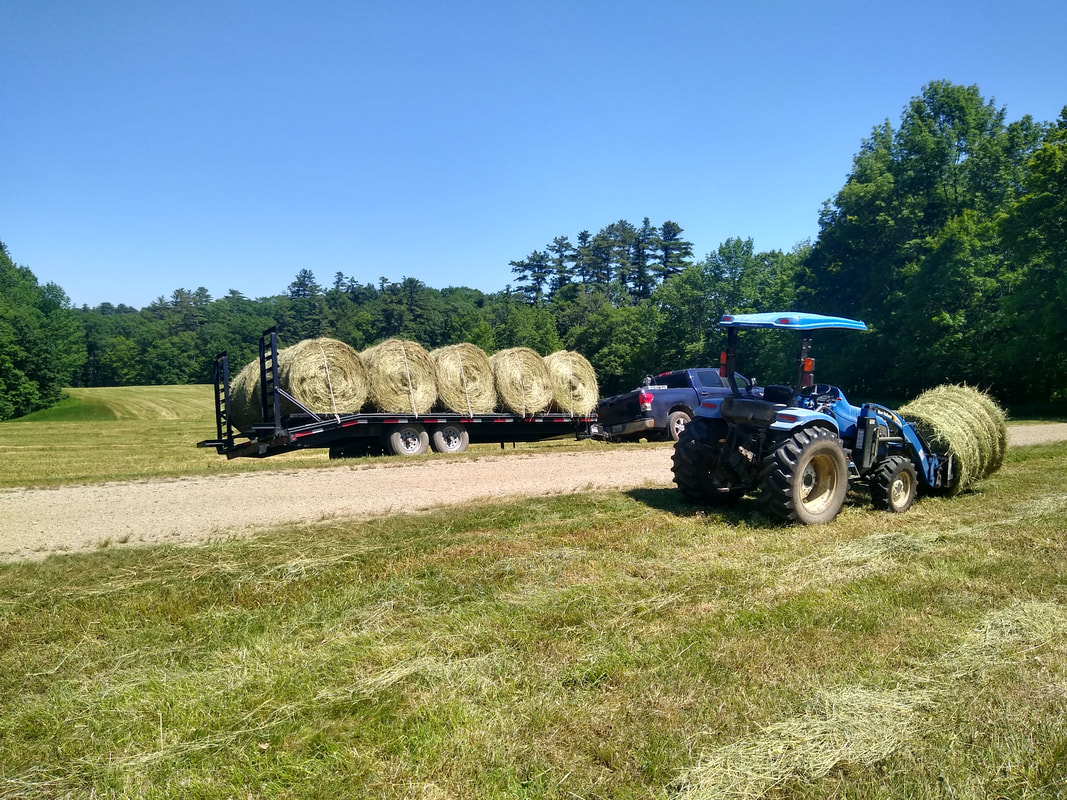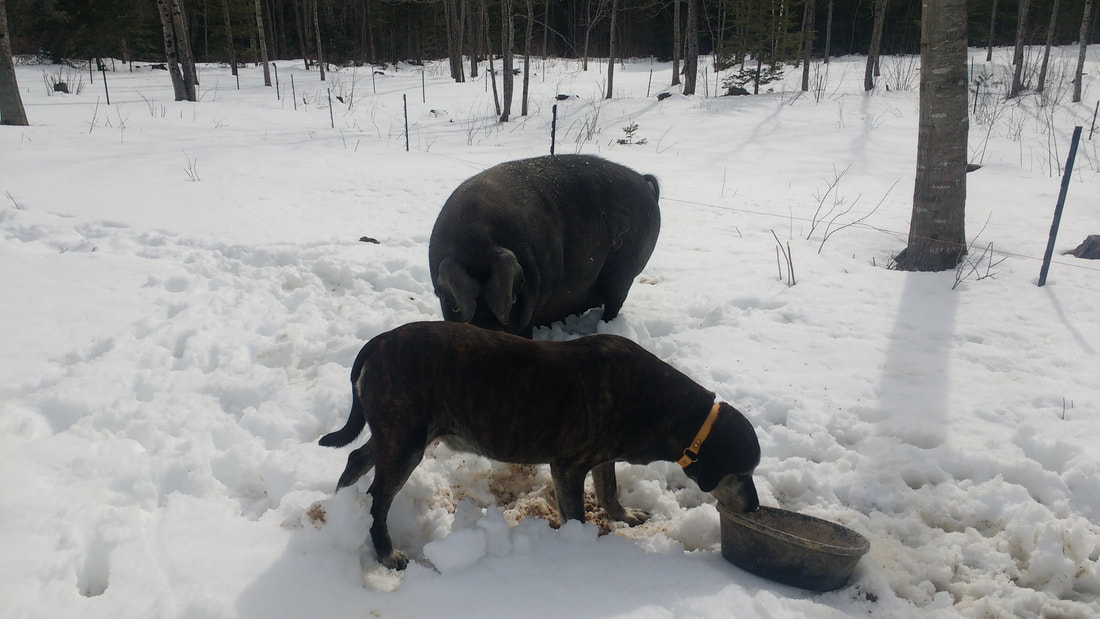Feed - It's Important!
Silvopasture
Our animals only get the best – we do this to ensure that you get the best tasting and healthiest meat possible. We raise our animals on silvopasture that consists of Tillage Radish, Forage Chicory, Perennial Rye, Alice White Clover, Crimson Clover, Sorghum, Kale, Oats and Field Peas and whatever mother nature adds. The vertical crop includes Red Oaks for acorns, Red Maple for maple syrup and pines for shade and lumber. The pastures are never treated with herbicides, insecticides or synthetic fertilizers. Through managed intensive rotational grazing our pastures are constantly being rejuvenated naturally.
Our animals only get the best – we do this to ensure that you get the best tasting and healthiest meat possible. We raise our animals on silvopasture that consists of Tillage Radish, Forage Chicory, Perennial Rye, Alice White Clover, Crimson Clover, Sorghum, Kale, Oats and Field Peas and whatever mother nature adds. The vertical crop includes Red Oaks for acorns, Red Maple for maple syrup and pines for shade and lumber. The pastures are never treated with herbicides, insecticides or synthetic fertilizers. Through managed intensive rotational grazing our pastures are constantly being rejuvenated naturally.
Crops:
We raise crops from open pollinated and organic seed in separate fields to supplement our animals’ diet throughout the year – this includes kale, squash, beets, turnips, and pumpkins - they love pumpkins! We also work with a great local blueberry farm to pick up blueberries that don't meet their stringent requirements (mostly blueberries that are too small that are screened out). During blueberry season (about 6 weeks) we feed out around 300lbs per day to our pigs!
We raise crops from open pollinated and organic seed in separate fields to supplement our animals’ diet throughout the year – this includes kale, squash, beets, turnips, and pumpkins - they love pumpkins! We also work with a great local blueberry farm to pick up blueberries that don't meet their stringent requirements (mostly blueberries that are too small that are screened out). During blueberry season (about 6 weeks) we feed out around 300lbs per day to our pigs!
Hay Hay!
How can we claim we run a pasture based farm in Maine when we have snow on the ground for 5 months of the year? The answer is simple - we stockpile pasture! Pigs love hay and will munch on it all hours of the day. Since not all hay is alike we are constantly seeking to improve our supply, focusing on hays with leafy greens that provide a good source of protein and nutrients. Hay makes up one very important component of our pigs diet and they love sleeping in it. How cool is it to be able to eat in bed?
How can we claim we run a pasture based farm in Maine when we have snow on the ground for 5 months of the year? The answer is simple - we stockpile pasture! Pigs love hay and will munch on it all hours of the day. Since not all hay is alike we are constantly seeking to improve our supply, focusing on hays with leafy greens that provide a good source of protein and nutrients. Hay makes up one very important component of our pigs diet and they love sleeping in it. How cool is it to be able to eat in bed?
Grain
Our use of grain varies significantly among the animals based on their dietary needs. In general we ship all of our grain in from Vermont so that we can get a high quality Organic grain. While pigs do better on pasture, they still need a significant daily grain ration to get all the vitamins, minerals, and nutrients that they need to grow up healthy. The meat chickens having high protein and energy requirements are fed a high protein grain in addition to access to clover, grass and bugs in the orchard. Except in the deep of winter, we do not feed our layer hens and roosters. They are the clean up crew for the pigs and forage all over the farm for greens, bugs and worms. We do not feed any grain to the sheep - being ruminants it is healthier for them to be 100% grass-fed with access to a mineral supplement.
Our use of grain varies significantly among the animals based on their dietary needs. In general we ship all of our grain in from Vermont so that we can get a high quality Organic grain. While pigs do better on pasture, they still need a significant daily grain ration to get all the vitamins, minerals, and nutrients that they need to grow up healthy. The meat chickens having high protein and energy requirements are fed a high protein grain in addition to access to clover, grass and bugs in the orchard. Except in the deep of winter, we do not feed our layer hens and roosters. They are the clean up crew for the pigs and forage all over the farm for greens, bugs and worms. We do not feed any grain to the sheep - being ruminants it is healthier for them to be 100% grass-fed with access to a mineral supplement.
Scraps/Slop (Not on this farm!!):
Pigs love scraps and many farmers use slop for some or all of their pigs’ diet. We don’t! We don’t feed slop, scrap, or trash to our pigs. Just like we want to know where our food is coming from, we want to know where our food’s feed is coming from.
When a farmer agrees to take scraps from a restaurant or grocery store they agree to take everything that goes into the designated container. The farmer has no control over what goes into the bin and once it gets to the farm, it isn’t feasible for the farmer to sort through the scraps to pull out unsuitable bits like spoiled food and packaging. That is not to say that turning a waste stream into pig feed is bad. Some farmers have established fantastic relationships with conscientious local businesses that have a quality controlled waste stream that can be a valuable feed supplement for pigs. We do not have such an arrangement and choose to feed our pigs nutritionally balanced organic grain, crops grown on the farm and eggs from our free range hens in addition to the grasses, roots and grubs they forage for themselves. But just like we enjoy a cheat day now and then, our breeding herd occasionally gets left over baked goods - a sweet treat for all the hard work they do producing beautiful piglets.
Pigs love scraps and many farmers use slop for some or all of their pigs’ diet. We don’t! We don’t feed slop, scrap, or trash to our pigs. Just like we want to know where our food is coming from, we want to know where our food’s feed is coming from.
When a farmer agrees to take scraps from a restaurant or grocery store they agree to take everything that goes into the designated container. The farmer has no control over what goes into the bin and once it gets to the farm, it isn’t feasible for the farmer to sort through the scraps to pull out unsuitable bits like spoiled food and packaging. That is not to say that turning a waste stream into pig feed is bad. Some farmers have established fantastic relationships with conscientious local businesses that have a quality controlled waste stream that can be a valuable feed supplement for pigs. We do not have such an arrangement and choose to feed our pigs nutritionally balanced organic grain, crops grown on the farm and eggs from our free range hens in addition to the grasses, roots and grubs they forage for themselves. But just like we enjoy a cheat day now and then, our breeding herd occasionally gets left over baked goods - a sweet treat for all the hard work they do producing beautiful piglets.

